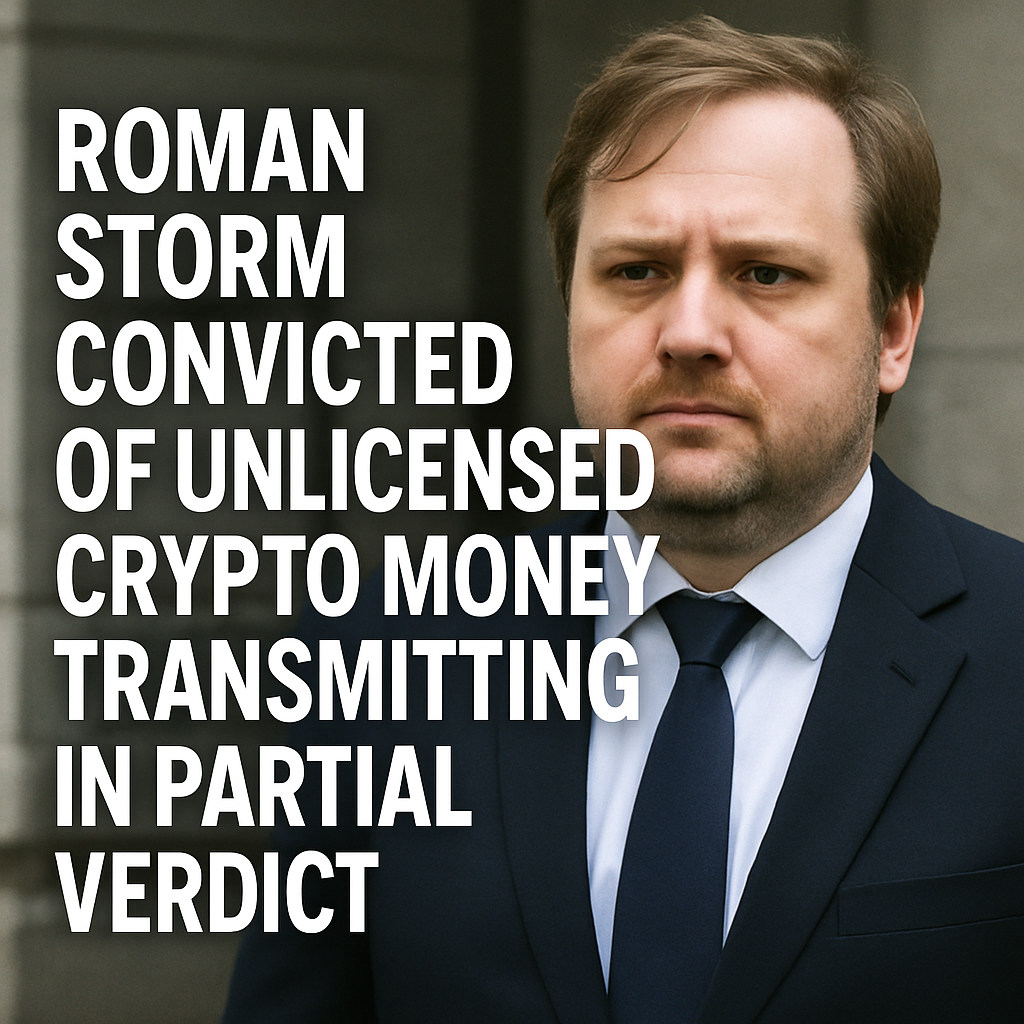In a landmark ruling, a federal jury in Manhattan convicted Roman Storm—a developer behind the Tornado Cash cryptocurrency mixer—of conspiracy to operate an unlicensed money transmitting business. After four days of deliberations following a three-week trial, jurors could not reach unanimous verdicts on charges of money laundering conspiracy and sanctions evasion, leading to acquittal on those counts. Storm faces up to five years in prison on the unlicensed transmission charge, pending sentencing. Prosecutors will decide whether to retry the two unresolved counts.
Storm’s legal team, led by Waymaker LLP partner Brian Klein, argued that Tornado Cash functions as a neutral software tool without custodial control over user funds. They emphasized vital distinctions between custodial and non-custodial systems. The defense highlighted Storm’s deep U.S. ties—including joint custody of his young daughter—and surrendered passport when opposing DOJ’s request to remand him into custody pending sentencing. Judge Katherine Polk Failla ruled Storm is not a flight risk and will remain free on a $2 million bond.
Prosecutors portrayed Tornado Cash as a conduit for illicit actors, including North Korea’s Lazarus Group, to launder more than $1 billion in stolen cryptocurrencies, citing the 2022 Axie Infinity hack. They asserted Storm was aware of the platform’s criminal use and continued its development. Storm’s supporters, including the DeFi Education Fund, condemned the conviction as a dangerous precedent threatening open-source innovation and privacy tool development.
The case underscores regulatory scrutiny of privacy-enhancing crypto services. Roman Storm now joins a small cohort of developers facing criminal charges for code-based protocols. The mixed verdict signals juror skepticism about broader money laundering charges while affirming unlicensed transmission liability. The DOJ’s next steps—whether to retry the hung counts—will influence legal frameworks for developers of decentralized protocols and inform future enforcement priorities in the rapidly evolving crypto regulatory environment.

Comments (0)